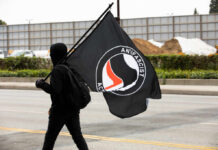Most popular news you must read today
Where Liberty is Given a Fair Perspective
Subscribe to Voice Of Liberty
By clicking subscribe, I agree to the Privacy Policy and Terms of Use
Welcome to Voice of Liberty! We’re a patriotic publication that’s dedicated to delivering the news to you in a truthful way. Our team is driven by integrity, and we promise to deliver fair reporting to you.
We publish current events stories, plus political and economic updates that concern liberty-loving US citizens. Through our News, Culture, and Politics stories, we aim to keep you informed.




